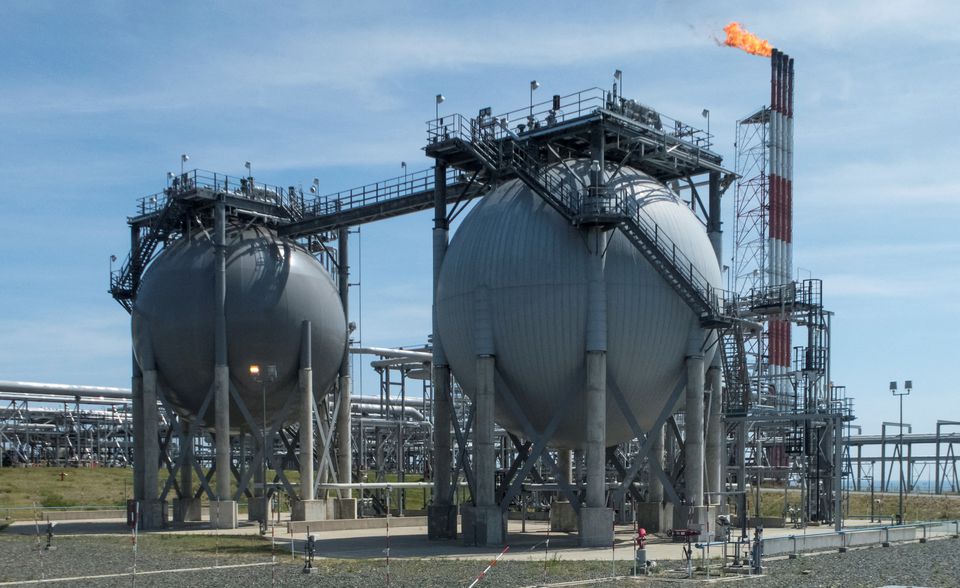
Japan intends to keep a stake in the Sakhalin-1 oil and gas project in Russia, industry minister Koichi Hagiuda said on Monday, after Russia temporarily banned Western investors from selling shares in key energy projects.
The project contributed to diversifying Japan's energy supply, Hagiuda told a news conference.
"Sakhalin-1 is a valuable non-Middle East source for Japan, which depends on the Middle East for 90% of its crude oil imports," said Haguida, the minister for economy, trade and industry.
"There is no change in maintaining the interests of Japanese companies in it," he said.
Russia has banned investors from so-called unfriendly countries from selling shares in banks and key energy projects, including Sakhalin-1, until the end of the year, stepping up pressure in a sanctions stand-off with the West.
Sakhalin Oil and Gas Development, a Japanese consortium, owns 30% of Sakhalin-1.
Separately, an Aug. 2 Russian government decree gave foreign investors at the Sakhalin-2 liquefied natural gas (LNG) project a month to claim their stakes in a new entity that will replace the existing one. The foreign investors include Royal Dutch Shell and Japanese trading houses Mitsui & Co and Mitsubishi Corp .
Hagiuda reiterated that Japan intended to have the Japanese trading houses maintaining stakes in Sakhalin-2.
"We'll need to consider specific measures after confirming details of Russia's decision," he said.
"The public and private sectors will work together to ensure a stable supply of LNG to Japan," Hagiuda said. They shared a basic policy on maintaining the stakes, and he hoped the trading houses would start the procedure for converting to the new entity if they could meet Russia's conditions.
Mitsui & Co has a 12.5% stake in Sakhalin-2. Mitsubishi Corp holds 10%.